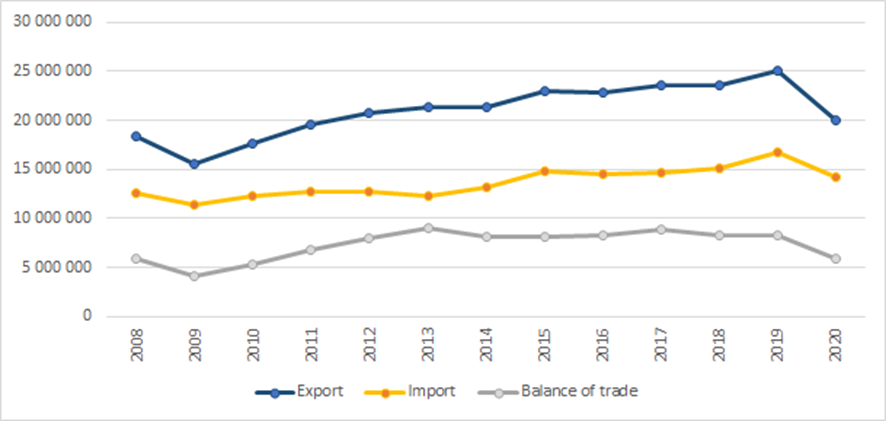
The report produced has been used to measure the cultural and creative sectors (CCS) funded by the European Union.
The research unit of the Universitat de València, Econcult, led by the economist Pau Rausell, together with the collaboration of the Fundación Alternativas and other entities involved, have carried out a report to measure the cultural and creative sectors (CCS) with funding from the European Union, whose results and conclusions were presented at the Final Event of the MESOC project: "Exploring and assessing the societal impacts of culture" on 9 and 10 March in Paris. The results are shown below.
In this study, it was found that people employed in the cultural and creative sectors represented 5.5 million people and 2.6% of the total workforce in the EU-27 as a whole in 2021.
The truth is that the last 14 years have not been particularly bright for the CCS. In 2021, employment was 99% compared to 2008, but 110% in terms of value added generation.
Both exports and imports of cultural goods have grown steadily from 2009 until the year of the pandemic, always with a positive balance of around 9 billion euros.

Moreover, since the productivity of the CCS is above the average for the economy as a whole, any increase in the share of these sectors will translate into an overall increase in the productivity of the system. The research shows that a 1% change in the weight of the CCS in the EU-27 countries translates into a 0.0125% change in labour productivity. In other words, if the weight of CCS doubles in the sample countries, average labour productivity increases by 1.25%.
In conclusion, it is necessary to deepen all those relationships that connect the CCS with other aspects of economic and social dynamics as a result of their effects on productivity, innovation, competitiveness or the flexibility and resilience of the economic structure. But there is also a long way to go in analysing the measurement of the social impacts of culture and its causal effects on citizens' well-being and social cohesion. Information systems should strive to provide data to explore these relationships.









